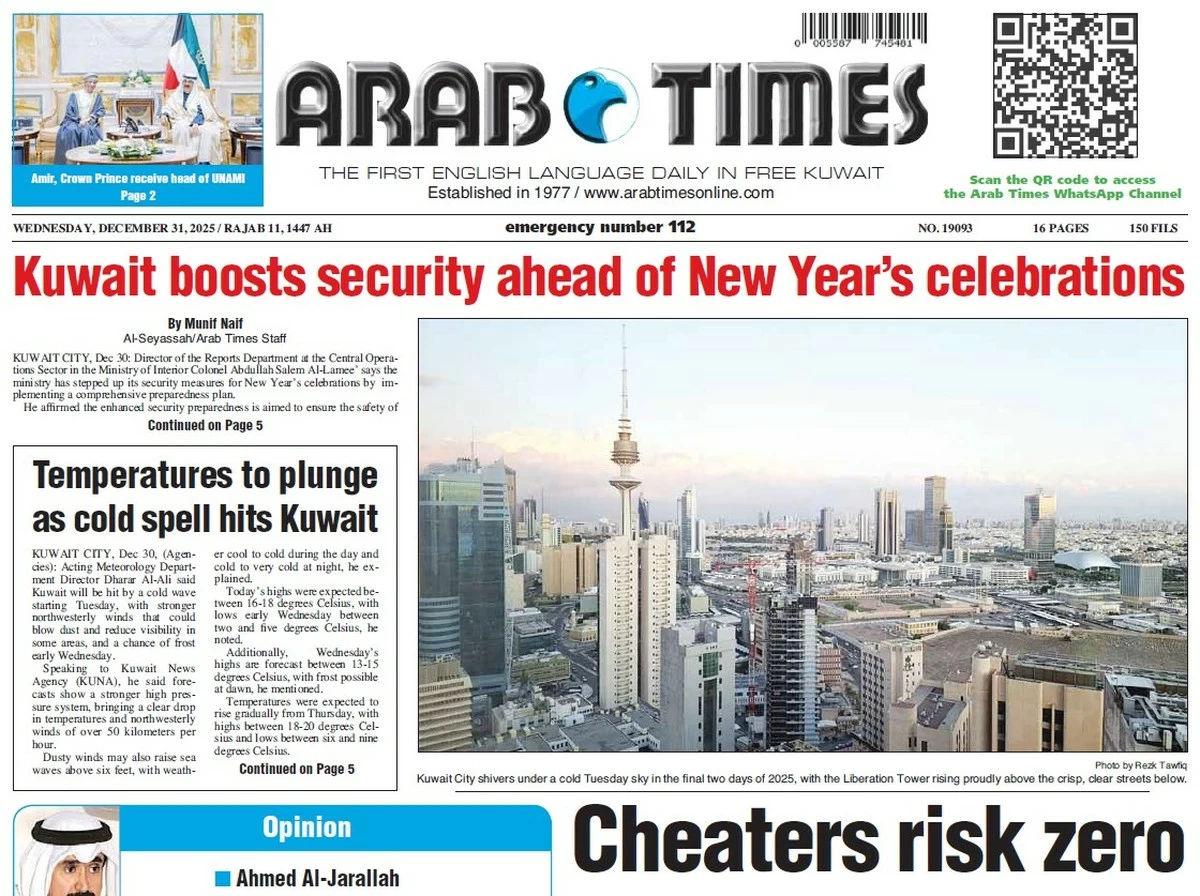04/11/2024
04/11/2024
ONE of the signs of the new era is the ongoing efforts to resolve one of Kuwait’s most complicated and persistent issues - the Bedoun issue. This situation has long consumed everyone’s attention and has been exploited for sectarian, tribal, and electoral purposes. It is widely known that no challenge is insurmountable if there is a will to resolve it.
Even the most difficult problems often have multiple solutions. If the state has capable and wise leadership that understands the risks of allowing unresolved issues to linger without a solution, especially those that do not entail high costs, it can transform these challenges into opportunities for success.
All nations that have dealt with the Bedoun issue such as the U.S., France, Germany, Britain, and many European and Western countries, as well as some Gulf nations like Saudi Arabia, the United Arab Emirates, and Bahrain, have faced similar challenges. However, some countries opted to grant these individuals rights comparable to those of citizens, except for full citizenship, to enhance their national productivity and utilize all available talent for employment and project opportunities. Initially, the Bedoun issue was relatively minor, but due to a lack of seriousness in finding solutions and the parliamentary trading in it in the National Assembly, it has evolved into a major problem.
In the process, many have overlooked the fact that it represents a stain on Kuwait’s reputation. In light of this, instead of finding a contemporary solution, the restrictions placed on these individuals became so severe that some turned to a life of crime, while others, especially those with professions, academic degrees, or foreign citizenship, chose to leave. Living up to the Gulf proverb “A spring quenches the thirst of the one who is far, while the one who is near dies of thirst”, many left Kuwait, the country where they had studied and spent their entire lives.
Some became British citizens, Canadian citizens, or citizens of other nations that embraced them and benefited from them. In the 1965 census, the number of Bedoun individuals was less than 15,000. However, they were left without a solution, either due to a lack of seriousness in solving the problem or their exploitation in electoral conflicts, as previously mentioned. Today, their numbers have significantly increased and the situation continues to worsen, particularly due to the revocation of nationalities, which caused serious social and economic issues. Their population has likely surpassed 200,000 or more.
This issue is on the mind of His Highness the Amir Sheikh Meshal Al- Ahmad, who aims to get rid of the crises and problems that have remained unresolved for 60 years. Even though the file is large, determination can pave the way to solutions, especially within the Council of Ministers. Therefore, the recent report about a roadmap to tackle the Bedoun file represents a crucial starting point not only for resolving this issue but also for dealing with several others. For instance, benefiting from the skills and workforce of Bedoun employees in various institutions could contribute to strengthening the country’s economic activity.
Furthermore, as we read, it is necessary to recognize that Kuwait is in a strategic location and is poised to embark on large-scale projects. To support the development and enhance the national product, it is necessary to employ all young people, skilled citizens, and Bedoun residents who were born and raised in the country. This calls for a large workforce for new projects. To conclude, we want to emphasize how pleased everyone would be to see the Bedoun issue resolved. This would mark a final solution to a longstanding social issue that has been exploited by dishonest parties to misrepresent Kuwait. Once again we say, where there is a will, there is always a way.
By Ahmed Al-Jarallah
Editor-in-Chief, the Arab Times



